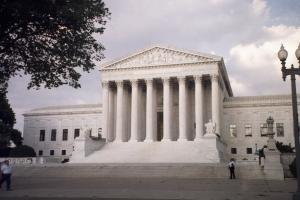On December 11, 2020, the Supreme Court of the United States issued a unanimous ruling in the case Carney v. Adams. The case originated from the U.S. Court of Appeals for the 3rd Circuit and concerned judicial selection in Delaware. The case was argued during the court’s October Term for 2020-2021 on October 5, 2020.
The case: As of December 2019, when Delaware Governor John Carney Jr. (D) filed a petition before the U.S. Supreme Court, Article IV, Section 3 of the Delaware Constitution required that no more than the bare majority of judges on a given Delaware court could be of the same political party.
James Adams, a retired lawyer, sued Gov. Carney in federal district court. Adams argued Article IV, Section 3 violated the First Amendment. In response, Carney argued that Adams did not have the legal right, or standing, to file a lawsuit. A federal magistrate judge ruled the state constitution’s provision was unconstitutional. On appeal, the U.S. Court of Appeals for the 3rd Circuit affirmed in part and reversed in part the federal district court’s ruling.
Gov. Carney, acting in his official capacity, filed a petition with the U.S. Supreme Court, arguing the 3rd Circuit’s decision conflicted with decisions in similar cases from the 2nd Circuit, 6th Circuit, and the 7th Circuit.
The issues:
(1) Does the First Amendment invalidate the Delaware Constitution’s “bare majority” requirement?
(2) Was the 3rd Circuit wrong to hold that part of the Delaware Constitution’s “bare majority” requirement is not severable from the rest of the requirement?
(3) Does the respondent have standing?
The outcome: The court vacated the 3rd Circuit’s decision in an 8-0 ruling, holding that James Adams, the respondent, did not have standing to sue the governor of Delaware. Justice Stephen Breyer wrote the opinion and Justice Sonia Sotomayor filed a concurring opinion. Justice Amy Coney Barrett did not take part in the case’s consideration or decision.
As of December 14, 2020, the court had issued opinions in nine cases this term. Four cases were decided without argument.
Additional reading:



